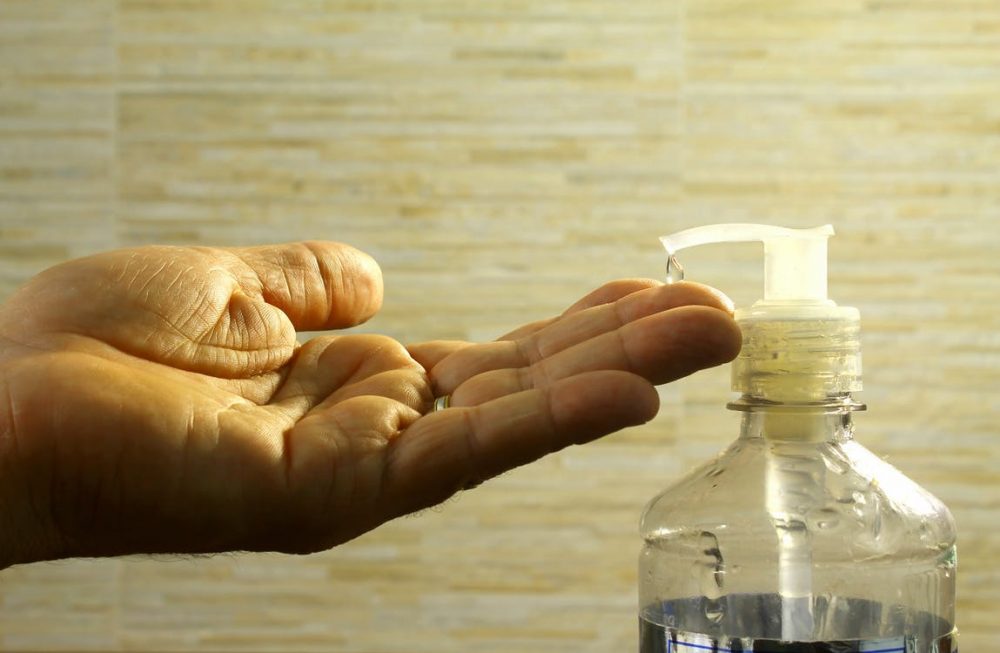The effects of chemicals in the home and the garden have become a topic of discussion in the news recently, so much so that there are proposals to ban some of them in the years to come due to how they interfere with air pollution.
Domestic chemicals can be detrimental to our well-being too, though a lot of the time we may not even notice we’re using items that contain them. In one study, for instance, it was revealed that regular household cleaning products like shampoo and oven cleaner release harmful volatile organic compounds (VOCs). They also contribute up to half of VOCs found in the atmosphere.
Join Compost Direct, which stock mulches and other garden essentials, as they take a look into the effects domestic chemicals can have on people and ways to get rid of them in place of safer alternatives.
Examples of domestic chemicals found in the home
The effects that domestic chemicals can have when used in the home have been looked into through various studies. Although some are on their way to be banned, there are others that remain on our supermarket shelves. Examples of these include:
- Hand soap — some contain the chemical triclosan, which has been found to affect thyroid hormones in animal studies and possibly contribute to the development of antibiotic-resistant germs.
- Researchers from the University of Iowa discovered that some kitchen cabinets emit PCBs (polychlorinated biphenyl compounds), chemicals which are under investigation as causes of cancer.
- Garden pesticides — neonicotinoid pesticides put both honeybees and wild bees at risk. Although, the UK government has said it will support a complete ban on the outdoor use of bee-harming chemicals.
- Benzene — this is a colourless chemical that is used to make lubricants, rubbers, dyes and detergents. It can be harmful with high exposure, as it leads to cells not working correctly.
- Formaldehyde — this is found in varnishes and floor finishes and can cause sickness and long-lasting problems after high exposure.
Domestic chemicals can prove even more harmful when combined as well. The mixture of bleach and rubbing alcohol, for example, can create toxic chloroform and make you unconscious — it’s always a good idea to read the label and be cautious when dealing with these sorts of products.
What are the alternatives to domestic chemicals?
Due to their use on a day-to-day basis, it can be difficult to using every domestic chemical that’s out there now. So, what actions can we take?
Start by reading the labels before you buy household items. Look out for the harmful ingredients that we’ve mentioned above and try to stay clear of them. As their dangerous properties have become more talked about, there are now many organic alternatives that you can buy for those sorts of products. Although these might have a higher price tag, it could be worth it in the long run.
Invest in some house plants too, as studies have found these can cut the damage that is caused by domestic chemicals. Take a look at the following for example:
- NASA reported that pineapple plants can improve air quality and help reduce snoring.
- Peace Lily can reduce toxins such as benzene, ammonia, ethyl and acetone and prevent the toxins from spreading across rooms. Research found that this plant can improve air quality by as much as 60%!
- Red-edged Dracaena rids the air of chemicals including xylene, trichloroethylene and formaldehyde.
Adequate ventilation and moderate temperatures should also be ensured when you’re making use of varnishes and products which give off harmful fumes. Aim to bring down humidity levels in the home by using dehumidifiers as well.
Sources
https://www.mirror.co.uk/science/modern-kitchen-cupboards-emit-chemical-12384317
https://edition.cnn.com/2017/01/25/health/triclosan-household-items-partner/index.html
https://www.telegraph.co.uk/health-fitness/body/clean-bill-health-household-products-wont-make/
https://www.fda.gov/ForConsumers/ConsumerUpdates/ucm205999.htm

